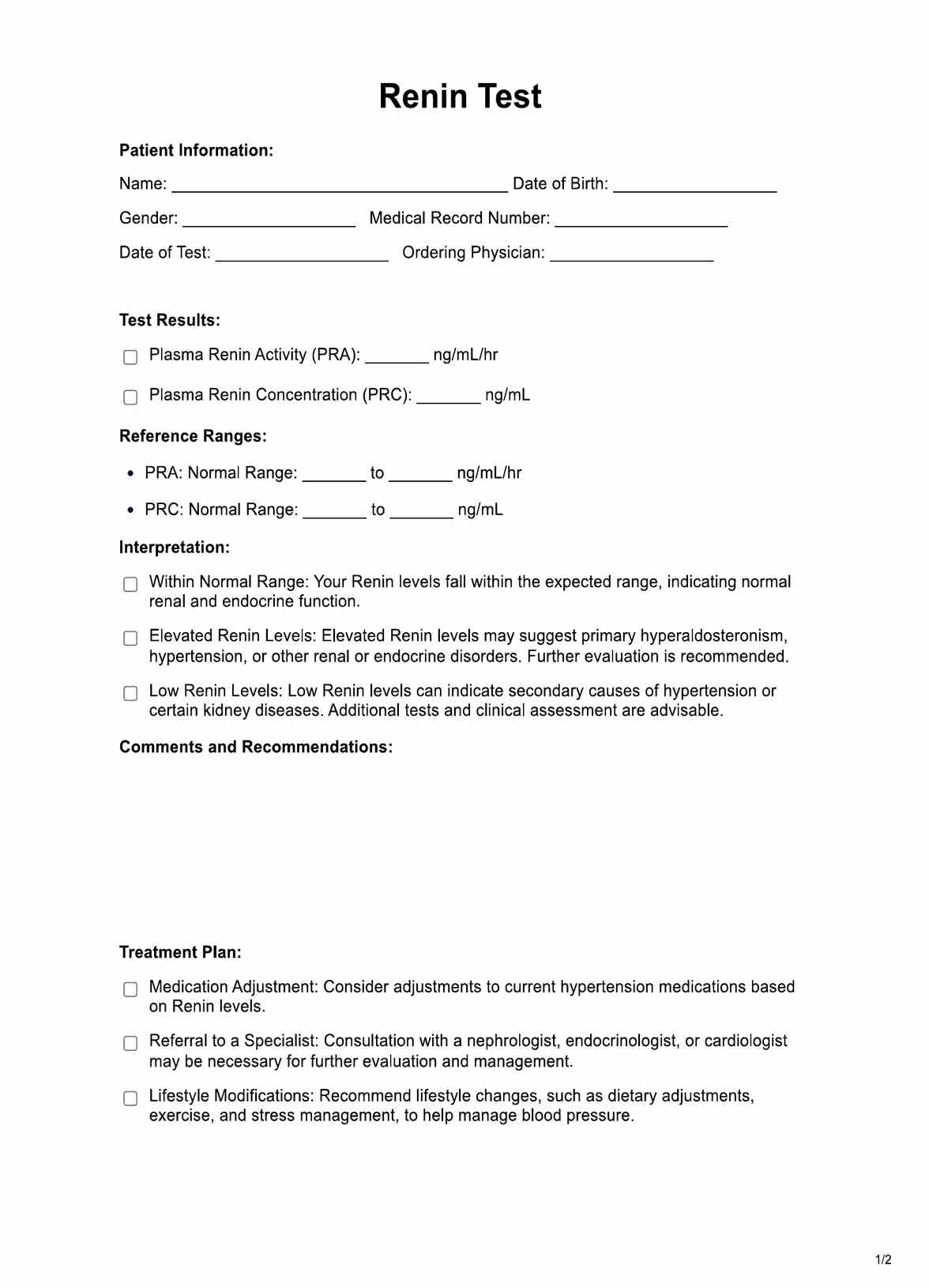A Renin Test is typically performed to assess blood pressure regulation and kidney function. It helps diagnose and manage hypertension, kidney diseases, and endocrine disorders like primary hyperaldosteronism.

Learn about Renin Test: A crucial diagnostic tool for hypertension and kidney health. Find out how it works and its importance in healthcare.
A Renin Test is typically performed to assess blood pressure regulation and kidney function. It helps diagnose and manage hypertension, kidney diseases, and endocrine disorders like primary hyperaldosteronism.
The test involves drawing a blood sample from the patient, usually from a vein in the arm. The collected blood is then sent to a laboratory for analysis. Results are typically expressed as Plasma Renin Activity (PRA) or Plasma Renin Concentration (PRC).
Normal reference ranges for Renin levels can vary by laboratory and measurement method. It is essential to interpret the results in the context of the specific reference ranges provided by the testing facility.
EHR and practice management software
*No credit card required
Free
$0/usd
Unlimited clients
Telehealth
1GB of storage
Client portal text
Automated billing and online payments